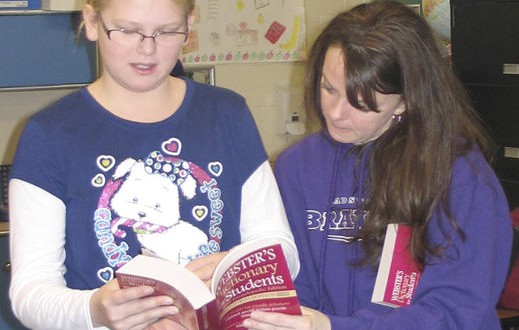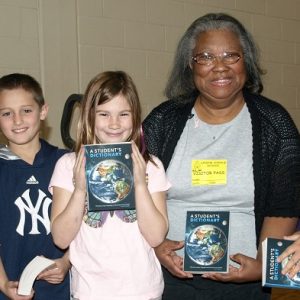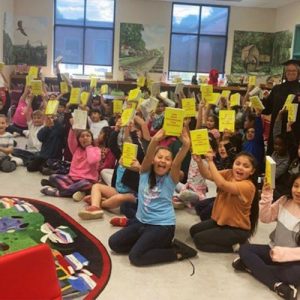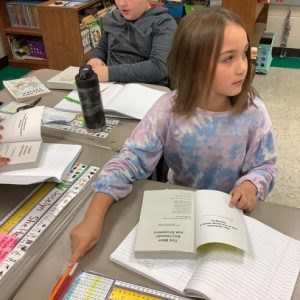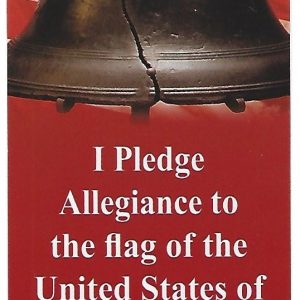Who’s Webster? Ask any third grader
When Bill LaMarch suggested that a program be established at the Escanaba Elks Lodge 354 to distribute Webster’s Dictionaries to area students, he also expressed a concern that it not be a one-time endeavor. His desire was that the project be ongoing so that interest in funding the project would continue.
"We knew it (the program) would cost about $2,000, but that was only for the first year," LaMarch said. "We want to be able to sustain the program and raise money to keep it going."
LaMarch said Elks have been involved in youth programs for many years, including scholarships, drug awareness, and sports, and this Dictionary Project is just one more way to help youngsters with their education.
"One of our members is George Peterson and we call him ‘The Godfather for the Elks,’" LaMarch said. "He’s a retired high school teacher and he totally supports the project."
LaMarch said he was pleased at the response he received from area schools about the project.
"When we went to the Escanaba superintendent and told her we wanted to provide the dictionaries to all the third-grade students in all the schools covered by the I.S.D. at no cost to the schools, she readily agreed," he said. "Our goal is always to try to help kids."
Once the Dictionary Program was underway, LaMarch, said they were distributed to youngsters in Escanaba, Gladstone, Bark River-Harris, Holy Name, Mid Peninsula, Rapid River, Hannahville and Manistique.
"There were more than 500 students between all those schools," he said. "We also gave a dictionary to each teacher and one for each third-grade classroom."
Since the Dictionary Project was established in 1995, over 17 million dictionaries have been distributed to third-grade students throughout the country. Educators see third grade as the dividing line between learning to read and reading to learn. Consequently, the vision of the promoters of the project is to provide a dictionary to every student in the United States in hope of helping them improve their reading and writing abilities and make the most of their education.
With computers in almost every classroom in the United States, Elks promoters acknowledge the trend to using online dictionaries and smartphone apps. However, they counter that not every child has access to personal computers and handheld devices either at their desks in school or even in their homes.
When presenting the dictionaries to the youngsters in Heather Murtha’s third-grade classroom at the Jones School, almost without exception, the youngsters expressed pleasure and excitement when they received their new book.
"Do they belong to the school or can we keep them for ourselves?" was one of the most common questions.
When they were told the dictionaries were theirs to keep, almost immediately, they wrote their names in the books and began looking up words.
When LaMarch told the youngsters that the Elks are a "benevolent" society, Murtha challenged her students to use their new dictionaries to look up the meaning of benevolent.
"The reception we received was nothing short of outstanding," said LaMarch. "In the 19 plus years I’ve been with the Elks, this program is by far one of the most gratifying experiences I’ve had. To date we have received well over 200 thank-you cards and I cannot express how thrilled I was."
Since he proposed the project to the Escanaba Lodge, LaMarch said the Elks have received more than $6,000 in grants from the group’s state and national foundations.
"It’s wonderful," he said with a broad smile. "For every dollar we raise, we give two and a half back to the community in the form of scholarships and other programs. This is just one more way to keep on giving."

